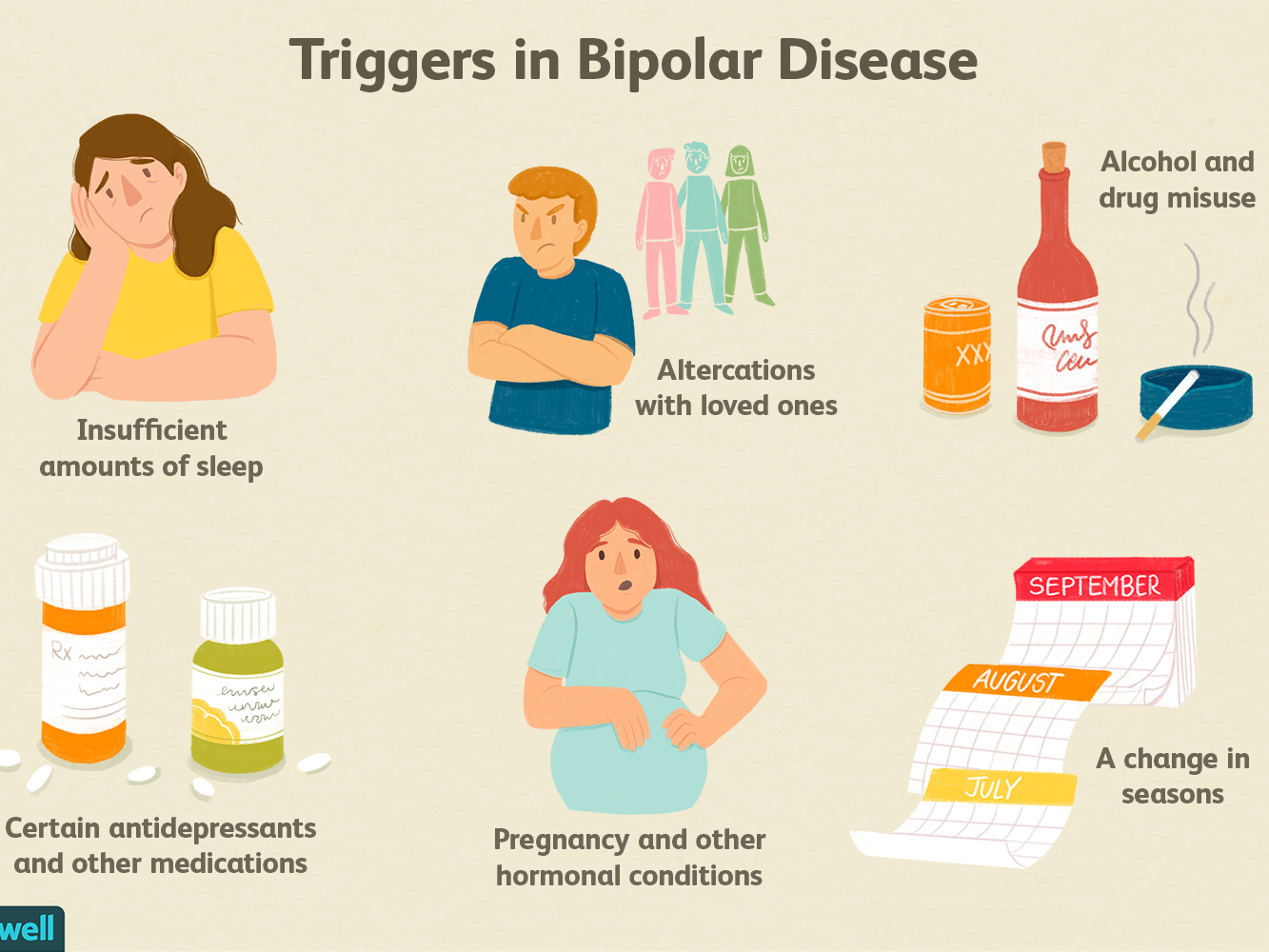What is Bipolar Disorder?

Bipolar Disorder is a mental health condition that causes extreme mood swings. People with bipolar disorder tend to experience episodes of severe depression and/or episodes of mania, which include, overwhelming joy, a lot of energy, a reduced need for sleep, reduced inhibitions. No two people have the same exact experience with bipolar disorder. Believe it or not, there are four types of bipolar disorder; bipolar disorder 1 is characterized my manic episodes, they can be with or without symptoms of depression, these episodes could last up to a week or longer. You could possibly be hospitalized if your episodes get too bad, you also don’t have depression to be diagnosed with bipolar 1.
Bipolar disorder 2 is characterized by having both manic and depressive episodes, the mania in bipolar 2 is usually less severe than bipolar 1, hence the name hypomania. With bipolar 2, you my experience a major depressive episode before or even after a manic episode.
Then there’s cyclothymic disorder, you will experience both manic and depressive episodes than will last 2 years or longer. It’s the same for children except you have to they have to experience both for at least one year before even being diagnosed. Unlike bipolar 1 and 2, the mania and depression are less severe. Cyclothymic disorder will cause unstable moods, which means you will have periods of normalcy mixed with both mania and depression.
The final type is when you have signs that don’t fit with the other three types of bipolar disorders, this type is usually caused by alcohol, drugs, or ever underlying medical conditions. The five most common signs of bipolar disorder are abnormal amounts elation or energy, fast talking or thinking, grandiose thinking, decreased need for sleep while having manic episodes, and hypersexuality.
Bipolar disorder is usually inherited with genetic factors which account for approximately 80% of the cause of this condition. Bipolar disorder is by far the most psychiatric disorder to be passed down in the family. There is a 10% chance of a child developing bipolar disorder just if one parent has it. Some things that trigger manic episodes are high amounts of stress; such as death of a loved one or a different traumatic event, another trigger is having a first-degree relative like a sibling or parent, that has bipolar disorder. One of the few way you can help someone with bipolar disorder is by having honest and open communication, you could also encourage them to stick to a schedule so they know exactly what they need to do and they won’t get as stressed.






